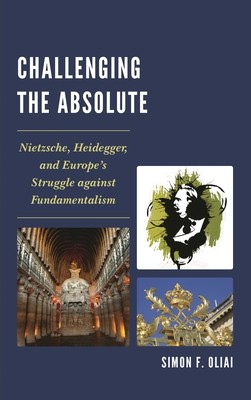
- We will send in 10–14 business days.
- Author: Simon F Oliai
- Publisher: University Press of America
- ISBN-10: 0761865152
- ISBN-13: 9780761865155
- Format: 16.3 x 23.6 x 2 cm, hardcover
- Language: English
- SAVE -10% with code: EXTRA
Reviews
Description
Our contemporary world presents a seemingly inexplicable paradox. It is a world where interaction among societies of different cultural traditions has never been easier. A world in which modern technology has visibly overcome the physical barriers that had long condemned the majority of men to relative isolation from one another. Yet, our world is also one in which the illusion of a lost "original" cultural or religious identity, grounded by a metaphysical absolute, pits men against one another. A physically more accessible world has thus become an increasingly fundamentalist one. In this book, written in the wake of such influential European thinkers as Nietzsche, Heidegger, Foucault, Derrida, and Vattimo, Simon Oliai analyzes the conceptual underpinnings of this paradox and argues that, unless the "European" affirmation of man's finite existence becomes universal, we shall never rid ourselves, to echo Nietzsche, of the repressive shadow of a long dead metaphysical idol.
EXTRA 10 % discount with code: EXTRA
The promotion ends in 6d.14:04:56
The discount code is valid when purchasing from 10 €. Discounts do not stack.
- Author: Simon F Oliai
- Publisher: University Press of America
- ISBN-10: 0761865152
- ISBN-13: 9780761865155
- Format: 16.3 x 23.6 x 2 cm, hardcover
- Language: English English
Our contemporary world presents a seemingly inexplicable paradox. It is a world where interaction among societies of different cultural traditions has never been easier. A world in which modern technology has visibly overcome the physical barriers that had long condemned the majority of men to relative isolation from one another. Yet, our world is also one in which the illusion of a lost "original" cultural or religious identity, grounded by a metaphysical absolute, pits men against one another. A physically more accessible world has thus become an increasingly fundamentalist one. In this book, written in the wake of such influential European thinkers as Nietzsche, Heidegger, Foucault, Derrida, and Vattimo, Simon Oliai analyzes the conceptual underpinnings of this paradox and argues that, unless the "European" affirmation of man's finite existence becomes universal, we shall never rid ourselves, to echo Nietzsche, of the repressive shadow of a long dead metaphysical idol.


Reviews